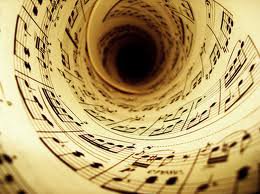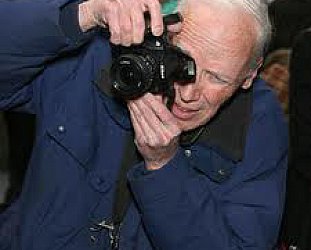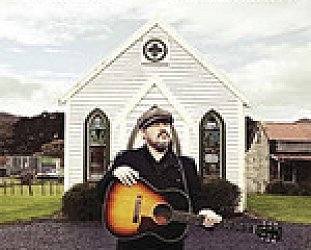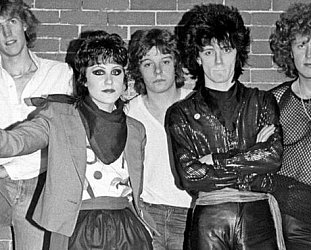Graham Reid | | 4 min read

What follows is Don McGlashan's speech at the Apra Silver Scroll Award in Auckland on September 13, 2012. We print it here with Don's permission and it's our privilege to do so, as much for its inspirational quality as its political truth.
Welcome to another Silver Scrolls - the special night in the year where we celebrate music and the people who write it.
I want to talk about power.
There are a lot of times when musicians feel a bit powerless: at the testing station, hoping the car will pass one more warrant before it bio-degrades; at the supermarket, doing mental maths in the long seconds while the eftpos machine makes up its mind; at the bank, trying to get a loan, while the bank manager asks you what you do for a real job.
But tonight should be a night when that usual order of things gets well-and-truly turned upside down. Tonight we should celebrate the power of what we do.
There's cultural power. When you write a song or a piece of music, all your life and the lives of your ancestors, and everything you've ever heard or overhead or misheard is gathered together into a high strength concentrate. And that concentrate has become the fuel for this age we live in.
Songs and music are the animating spark of the world today. Without them, the world would be like a fairground before the power switch has been turned on, before the lights blaze and all the wheels and rides start whizzing around.
And people recognize that power. When songs work, people want to use them. Whether they're making a feature film, selling you a pair of jeans or a political party. Whether they're celebrating the closing of a deal, or the opening of the Olympics.
When songs work, they put down roots deep into culture. If someone from the next century wanted to know what life was like right here, right now, they'd go straight to the music that we're making and listening to, and the music would tell them. It's that cultural value and power that songs have that we come here every year to celebrate.
There's political power. The power of music and songs to change things.
During hard times, you often see a rise in the tendency to want to punish, to demonize, and to exclude.
I think we're living through a phase like that in this country at the moment. Ambiguities are getting removed, grey areas getting bleached out, leaving only black and white labels, like: "Beneficiary", "Overstayer", "Solo Mother", "Criminal". Whoever the enemy is this week, they'll get a thumping, and while that's going on, far-reaching changes can go on quietly in the background.
So where do we fit into that? How can we work on our rhyme schemes when there's so much injustice out there?
Well I believe at times like this it's even more important for people like us to stick to our work.
To describe our own corner in our own way. By just witnessing the world - faithfully and clearly - we help to colour it with ambiguities and complexities.
By telling our truth as we see it, that's our way of fighting against those who want to sell us their version of the truth, along with whatever hidden agendas they may have. By simply describing what it is to be human, we make it harder for those black-and-white labels to stick.
That sounds like a big claim to make for something as small and fragile as a song - but it's not.
Artists have enormous power, just by doing what they do. So much so that every dictator in history has put suppressing or controlling his artists right up there at the top of his list - just under designing a fancy uniform.
There are new also kinds of power available to us, that spring from new ways of communicating our music. Download stores like Amplifier, Marbecks Mdigital, banditFM, Fishpond, and The Insong; Streaming services like Theaudience, Spotify, Deezer, Rdio, Rara, Mixtape, MusicUnlimited and Vevo; And the internet radio giant Pandora.
Many of these have just come onstream in New Zealand in the last months.
A lot of them have "If you liked this, you'll like that" features, which, over time, are really going to help new artists get noticed; and here's the thing: all of them are legal - ensuring that when music gets heard, artists get paid.
And finally, there's collective power, the power of music to bring us together as writers; to underline our sense of shared purpose.
That can be an unfamiliar concept for a songwriter, because our process is usually about solitude, not solidarity.
But when we write a song - often without even knowing it, we're talking to other writers, alive and dead, and they're talking to us, through all the songs we've loved over the years.
Tonight we can come out of our solitude for a little while, and revel in the fact that we're with a bunch of other people who have devoted their lives to writing songs and music, just like we have.
Our styles may be radically different - someone at table 31 might do a nice line in soft Country Ballads, while next door at table 28 lurk exponents of Swedish Death-Metal. But that doesn't matter. What matters is the choice we've all made with our lives - a hard choice - to follow this unpredictable, intoxicating calling of ours.
And being part of this community of writers should be something we're really proud of, no matter how much smoke our car emits, and no matter what the eftpos machine at the supermarket occasionally reveals about us.
Because what unites us is that we know what it feels like when we've written something good. When we get up and dance around the room and punch the air. Because all the power that I've been talking about is right there in that moment.
And it belongs to all of us in this room tonight.
I hope you all have a fantastic evening, and I hope, when you wake up tomorrow morning (or afternoon) that you start a new song.
Don McGlashan is an award-winning New Zealand songwriter who has been in the percussion ensemble From Scratch, the bands Blam Blam and Mutton Birds, in the performance group Front Lawn with Harry Sinclair, and he is currently also on the board of Apra. His website is here.
* The nominees for (and of course the winner of) the Apra Silver Scroll answered the Famous Elsewhere Questionnaire here.
Other Voices Other Rooms is an opportunity for Elsewhere readers to contribute their ideas, passions, interests and opinions about whatever takes their fancy. Elsewhere welcomes travel stories, think pieces, essays about readers' research or hobbies etc etc. Nail it in 1000 words of fewer and contact graham.reid@elsewhere.co.nz.
See here for previous contributors' work.





Rob - Sep 14, 2012
Lovely words- :)
SaveJamie - Sep 16, 2012
Don for President!
SaveReally appreciate you publishing this Graham. Apra should use this at every opportunity. The significance of the role of the artist in society is so often overlooked.
I agree with Don about the excitement that new technology has brought to music in particular. My horizons and ability to experience music has been enhanced so much by broadband. I would never have read his speech, never have heard your views on such a wide range of stuff, if it weren't for new technology.
Sorry, Sunday morning musings .... GRAHAM REPLIES: Indeed, and because I think what he had to say was/is very important, can we use the technology (Facebook, Twitter, e-mail link, whatever) to disseminate this as widely as possible please? Go.
Relic - Sep 17, 2012
Beautifully put by Don, (heh WOF/checkout). Musos always get hit up for freebies supporting this or that, as one of those FB truisms said “try and get a plumber to do a benefit gig”.
SaveNot everyone is going to write a “There is no depression in Noo Zeeeealand” but when times are tough hopefully a few more artists will put the slipper in where it deserves to be.
Robert Grundy - Sep 17, 2012
Fine words from Don, and what a great artist. I'm constantly amazed we've managed to keep him in NZ.
SaveRelic, next time you're at a scout hall or sports club working bee, count the musos v plumbers, the latter do their bit (I'm not one, but know many and they are as generous and community spirited as the next person)
Mark Hendry - Sep 18, 2012
A song is the embodiment of the phrase "Everything can change in 5 minutes." Well three and a half...
SaveDavid Geary - Sep 19, 2012
Cheers Graham, and Don for saying it like it is...and proving it with his songbook.
Savepost a comment